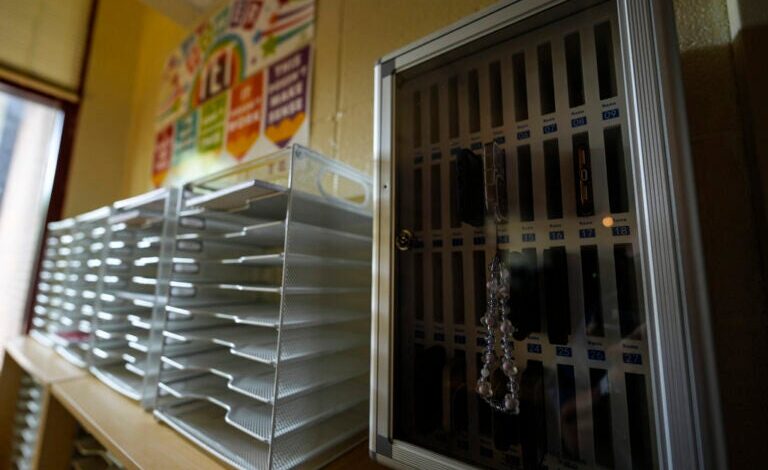New Jersey Panel Proposes Comprehensive Cell Phone Ban in Schools

A recent report from the New Jersey Commission on the Effects of Social Media Usage on Adolescents recommends a comprehensive “bell-to-bell” ban on cell phones in schools. This proposal aims to address the growing concerns about the impact of social media on students’ mental health and academic performance. The commission, which includes a diverse group of students, parents, educators, and mental health experts, advocates for local school districts to implement these bans, which would extend to school buses, lunch breaks, and school-sanctioned events.
The commission’s recommendations come amid wider legislative efforts to regulate online student activity. Cody Miller, a Democratic Assemblyman from Gloucester, is spearheading a bill that directs the state Department of Education to create guidelines for managing cell phone and social media use during instructional hours. “It gives school districts the flexibility to determine which policies work best for them to limit cell phone use within the classroom,” Miller stated.
Miller’s proposed legislation also includes provisions for students with documented medical conditions that necessitate access to their phones during school hours. His approach emphasizes that there is no “one-size-fits-all” solution, allowing districts to tailor their policies to suit their specific needs.
Addressing Mental Health Concerns
The psychological impact of social media on young people has become a focal point of this discussion. Stephanie Marcello, chief psychologist at Rutgers University Behavioral Health Care, highlighted studies indicating that social media use can exacerbate issues such as anxiety, depression, and loneliness among youth aged 10 to 19. “Social media exposure can also hinder academic learning, attention spans, and social interactions,” she explained.
Marcello noted the critical importance of teaching students how to engage with their environment without the distraction of devices. “Learning how to connect with people and being aware of what’s going on around you is essential,” she added.
Currently, schools in Cherry Hill have already instituted bans on cell phones, reflecting a growing recognition of the challenges educators face in managing classroom behavior related to device usage. Miller remarked that limiting access to phones during school hours is a matter of common sense. “We hear from educators all the time that they have a really difficult time managing behaviors within the classroom because students have access to their cell phones,” he said.
Policy Recommendations for a Safer Environment
The commission’s report also emphasizes the importance of digital citizenship and media literacy education. It suggests that school districts should not only focus on restrictions but also provide instruction that empowers students to navigate the digital landscape responsibly.
Among the report’s additional recommendations is the call for health care providers to screen adolescents for signs of “problematic social media use” to identify potential risks and enable early intervention.
The commission co-chairs, Pearl Gabel and Charles Gelinas, described the report as a “roadmap for action,” underscoring that “social media has rewired childhood, and the stakes could not be higher.” They expressed optimism that New Jersey could lead the national conversation about the safety and well-being of children.
New Jersey Education Commissioner Kevin Dehmer praised the commission’s work, noting the impressive panel of experts involved. “Building off of this work, we must continue to review new research to address the pressing issue of health and academic impacts of social media use on our students,” he stated.
During his State of the State address in January, Phil Murphy, Governor of New Jersey, voiced support for implementing a cell phone ban in schools, asserting that phones hinder students’ ability to absorb what they learn.
Miller anticipates bipartisan support for his bill, which he expects to be scheduled for a vote in the coming weeks. An identical version of the measure passed the New Jersey state Senate earlier this year, reflecting a growing consensus on the need for proactive measures in education.
As this discussion unfolds, the conversation about balancing technology use with educational effectiveness continues, with advocates calling for a comprehensive strategy that prioritizes the well-being of students.






